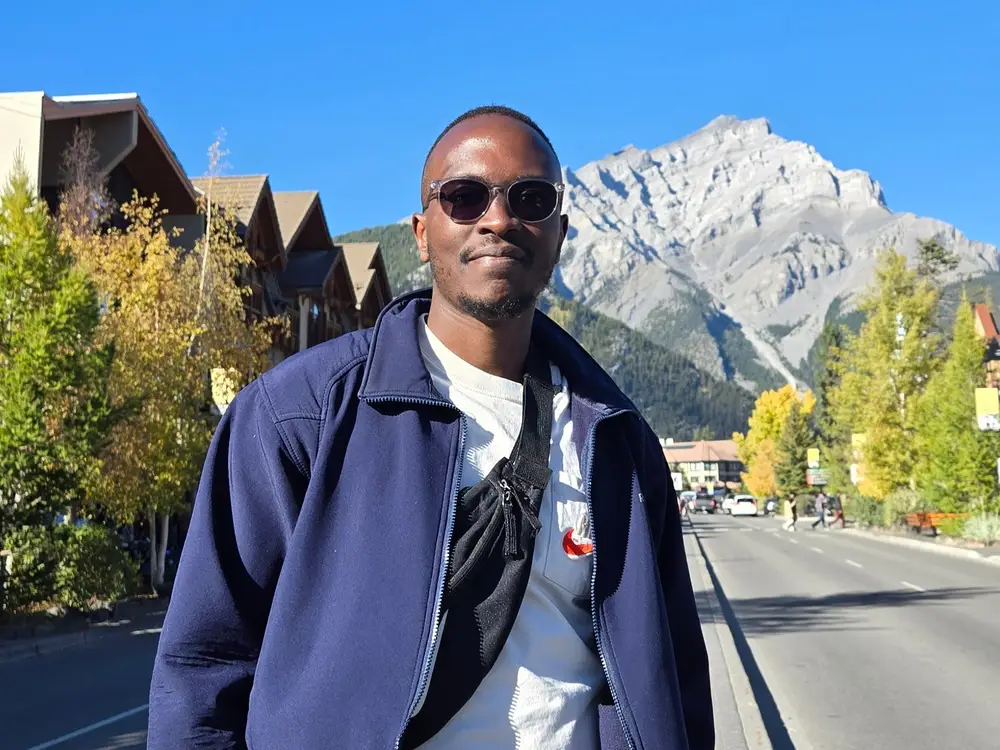When I left Kenya for Canada in 2016, I didn’t realize how much my name would shape my journey. My full name is Mwangi Wanjau, a proud Kikuyu name passed down from my grandfather, James Mwangi Wanjau.
But soon after arriving in Canada, I began to notice that my name — something so ordinary at home — suddenly made me stand out. People paused, stumbled, or asked me to repeat it. I could see their confusion, and over time, it made me feel like I didn’t belong.
So I started introducing myself as James. It felt easier. It sounded familiar. And for a while, it helped me fit in — or at least, that’s what I thought.
At 19, I moved to a small city in western Canada to study mathematics. It wasn’t as diverse as places like Vancouver, and I was often one of the few Black people in the room. My friends from university knew me as Mwangi, but with new people, I became James.
When I used “James,” conversations flowed more easily. People remembered my name. The awkward pauses disappeared. It was a relief — like dropping a heavy bag I’d been carrying. But deep down, I felt uneasy. I was slowly hiding who I was.
I also began to soften my accent and use Canadian slang, hoping people would feel more comfortable around me. I didn’t want anyone to assume I was “fresh off the boat” or less educated just because of how I sounded.
What started as a small adjustment to fit in became a way of surviving — but it cost me my sense of self.
After graduating, I worked in customer service and sales, still using “James.” When I began applying for professional roles in 2023, I switched back to using my real name — Mwangi. I felt more confident and thought my experience would speak for itself.
But months passed, and I didn’t hear back from most jobs. That’s when my barber, who knew me as James, casually suggested, “Why not try using James on your résumé?”
I hesitated at first. But after changing my résumé to James M. Wanjau, something shifted. Suddenly, recruiters started calling. My name rolled off their tongues without hesitation.
Within a few months, I landed a job as an admissions and awards coordinator at the university where I’d studied. It felt like progress — yet something inside me was unsettled.
At work, my official email still said “Mwangi,” but I signed messages as “James.” Outside of work, my friends called me Mwangi. Every day, it was like flipping a switch at 8 a.m. and turning into someone else.
One day, a workplace survey asked: “Do you feel like you belong here?”
That question hit me hard. I realized I didn’t. My colleagues knew the professional version of me — James — but not the real me, the person who laughed in Kikuyu with his family and prayed in Swahili.
I began to wonder: What was the point of fitting in if it meant losing myself?
In the spring of 2025, I made a decision. I would start using Mwangi again — my true name.
It wasn’t easy. When people asked me to repeat it or spell it, I reminded myself that patience goes both ways. After all, I’d spent years adjusting for others.
When I started a new role recently, my hiring manager asked which name I wanted to go by. This time, I said proudly, “Mwangi.”
Now, when a barista asks for my name and writes it carefully on a cup, or when a colleague stumbles over the pronunciation, I smile. I’d rather correct them than correct who I am.
“Knowing I don’t have to wear a different name or personality every morning feels like a breath of fresh air.”
Since 2020, social movements around diversity, equity, and inclusion have opened up more conversations about identity. I realized that if I wanted workplaces to be more inclusive, I needed to start by being visible — as myself.
I understand why many people with ethnic or “foreign-sounding” names change them to get a fair chance. Sometimes, that’s what it takes to survive in systems that are still biased. But I’ve learned that true belonging doesn’t come from blending in — it comes from being accepted as you are.
I want to be known for my skills and character, not for how easy my name is to pronounce.
My name is Mwangi Wanjau — and I no longer need to be anyone else to succeed.



